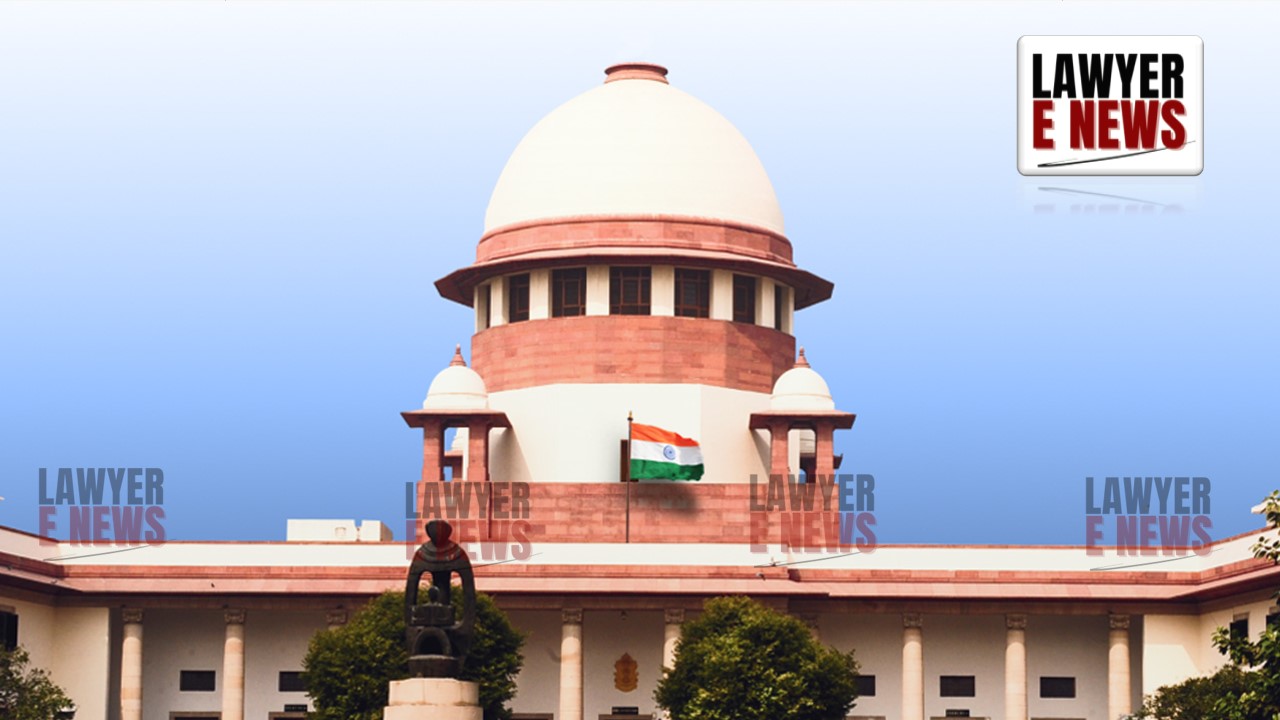-
by Admin
15 February 2026 5:35 AM



Supreme Court of India reaffirmed that the principles of Hindu law, specifically joint family property concepts, cannot be applied to disputes involving Muslim co-tenants. The bench, comprising Justice Abhay S. Oka and Justice Ujjal Bhuyan, upheld the Allahabad High Court’s judgment which had determined the shares of the parties based on Muslim personal law rather than Hindu law. The appellants, who claimed a larger share in certain agricultural lands, were ultimately held entitled to only a 1/12 share in the disputed plots.
The case originated from a dispute over co-tenancy rights in Khata Nos. 98 and 99 in the Sultanpur district of Uttar Pradesh. Zahoor Ahmed, the appellants’ predecessor, had claimed a 50% co-tenancy share in these plots. Following his death, his legal heirs (appellants) continued the legal battle. The respondents, Sami Ullah and Badlu, argued that Zahoor Ahmed’s share was limited to only 1/12, citing a relinquishment deed executed by Zahoor Ahmed in their favor.
The dispute was first raised under Section 9(2) of the Uttar Pradesh Consolidation of Holdings Act, 1953, before the Consolidation Officer. Over several stages of appeals and revisions, the matter reached the Allahabad High Court, which ruled in favor of the respondents and restricted the appellants' share. Aggrieved, the appellants approached the Supreme Court.
Legal Issues at Hand and Court Observations
1. Application of Hindu Law Principles to Muslims
The central issue before the Court was whether the lower consolidation authorities erred in applying Hindu joint family principles to a dispute involving Muslim co-tenants. The Court emphasized that “the concept of joint family property, prevalent among Hindus, is not recognized in Muslim law.” Consequently, the High Court correctly re-evaluated the shares based on Muslim personal law, and the Supreme Court upheld this approach, finding no error in the High Court’s interpretation.
2. Validity of the Relinquishment Deed
Another key issue was the validity of the 1948 relinquishment deed by which Zahoor Ahmed allegedly surrendered his rights in certain plots. The appellants contended that this deed was invalid. However, the Court observed that the deed was a registered document that Zahoor Ahmed did not challenge during his lifetime, thereby affirming the presumption of its genuineness.
The Court observed, “Execution of the relinquishment deed in respect of the four plots of land was not denied by Zahoor Ahmed. It was a registered document and thus carried the presumption of genuineness.” Based on this, the Court upheld the High Court’s decision to exclude the plots covered by the deed from the appellants’ share.
High Court’s Determination of Shares Based on Muslim Law
The Supreme Court agreed with the High Court's observation that the lower consolidation authorities improperly allocated shares on the assumption that the land in question was joint family property, a concept recognized under Hindu law but not applicable to Muslims. The High Court had held that the appellants’ share in the plots under Khata Nos. 98 and 99 was 1/12, not 1/2 as the appellants claimed.
The High Court’s ruling was based on a lease deed dated May 7, 1922, which recorded that Abdul Ghafoor (respondents' predecessor) and Mohammad (the appellants' ancestor) held shares of 5/6 and 1/6, respectively. This lease deed, accepted by the consolidation authorities, supported the finding that the appellants were entitled to only 1/12 of the disputed property.
Relinquishment Deed - Presumption of Genuineness and Effect on Share
The registered relinquishment deed, executed by Zahoor Ahmed in 1948, transferred his interest in certain plots to the respondents. The High Court and Supreme Court both upheld this deed as genuine and binding. The Supreme Court noted, “Zahoor Ahmed was alive when consolidation proceedings commenced but did not contest the deed. His silence implies acceptance of its terms.”
By affirming the validity of the relinquishment deed, the Court excluded plot Nos. 35, 57, 111, and 112 of Khata No. 99 from the appellants’ share, aligning with the High Court's decision.
The Supreme Court dismissed the appeals, affirming the High Court's ruling that the appellants are entitled to only a 1/12 share in Khata Nos. 98 and 99, excluding the plots covered by the relinquishment deed. The Court’s decision reinforces the principle that Hindu joint family property concepts cannot be applied to Muslim parties, and upholds the validity of registered relinquishment deeds when they are not contested.
Key Takeaways from the Judgment
Application of Personal Law: The judgment underscores that in co-tenancy disputes involving Muslim parties, Muslim personal law governs the determination of shares, not the principles of Hindu joint family property.
Validity of Registered Documents: The Court reaffirmed that registered documents like relinquishment deeds carry a presumption of genuineness, especially when they remain uncontested during the lifetime of the executing party.
Consolidation Proceedings under the U.P. Consolidation of Holdings Act: This case illustrates the role of the Uttar Pradesh Consolidation of Holdings Act, 1953, in facilitating the consolidation and efficient management of agricultural land holdings, while ensuring disputes are resolved according to relevant personal laws.
Date of Decision: October 24, 2024
Nisar Ahmad & Ors. v. Sami Ullah (Dead) Through LRs & Anr.
